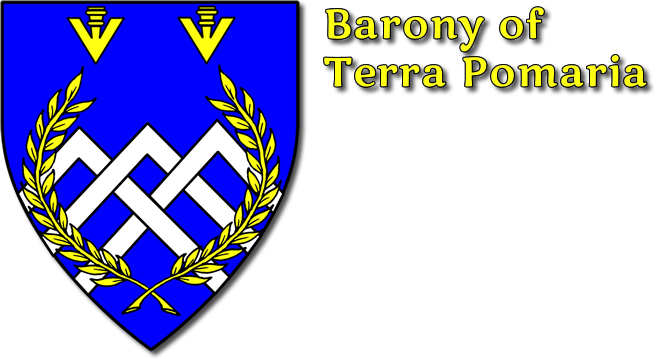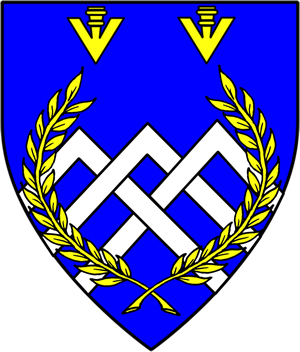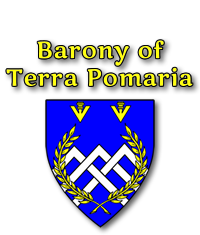19 Dec Little Cabbages
Then Serve It Forth…
By Berengaria de Montfort of Carcassonne
It’s my objective to capture here the dishes we did actual reconstruction on. I will mention there were peas, nothing special done to them; baguettes, which were made by Myfanwy ferch Robert (Sarah E. Yancey Miller); and frissee [1] of pears served with various French cheeses. This dish was redacted and prepared by The Hon. Lord Marcus Valerius Taurus (Joseph Boyd) and here follows his recipe and work notes.
A Dish from Kingdom Feast & Bardic, Luncheon Course
Little Cabbages (Brussels Sprouts)
This recipe is from Le Ménagier de Paris, a 14th century French manuscript; it can be found in Early French Cookery, or in The Medieval Kitchen.
Original Recipe: Et des troncs [des choulx Rommains], se ins sont replantés, yssent de petits choulx que l’en appelle minces, que l’en mengue avec les herbes crues en vinaigre; et qui en a foison, ils sont bond esleus, laves en eaue change, et tous entiers mis cuire avec un petit d’eaue; et puis quant ils sont cuis, mettre du sel et du l’uille, et dreciés bien espois sans eaue, et mettre de l’uille d’olive dessus en Karesme. Translation: (from The Medieval Kitchen: Recipes from France and Italy) And from the stalks [of Roman cabbages], if they are replanted, come little cabbages called sprouts which are eaten with raw herbs and vinegar; and if you have plenty, they should be well cleaned, washed in hot water, and put to cook whole with a little water: and then when they are cooked, add salt and oil, and stir it up thick without water, and put olive oil on in Lent.
My Interpretation: 1 lb fresh Brussels sprouts, ½ t salt, 3-4 Tbsp olive oil, 1 T herbs (Italian herb blend: Marjoram, thyme, rosemary, savory, sage, oregano, and basil), 1 T wine vinegar.
Trim Brussels sprouts, score on end with an X and place in pot with a steamer. Although the original recipe does not mention specifically to score the sprouts, I consider this part of the standard cleaning process of the sprouts, allowing for more even cooking.
Steam the sprouts until tender. Toss the cooked sprouts with remaining ingredients, serve warm.
Works Referenced:
The Medieval Kitchen: Recipes from France and Italy; Odile Redon, Françoise Sabban, & Silvano Serventi, translated to the English by Edward Schneider; The University of Chicago Press, 1998
Early French Cookery; D. Eleanor Scully & Terence Scully; The University of Michigan Press, 1995
12 oz = 20 sprouts which equals 4 servings 1 lb – 26.56 spouts equals 5 servings.
50 lbs worth of sprouts.
I’m pretty sure I used a full cup each of olive oil and wine vinegar. [Marcus states he did a certain amount ‘to taste’ at the end, so there was less olive oil & vinegar actually used than would result from a strict 50X multiplication. I would start with one cup each if you were making 50X, and add to taste of all the seasonings. You can always add; you can’t subtract. In any event, we received copious compliments on the Minces, such as: “Tastes far better than cold Brussels sprouts have any right to.”]
We debated on the best way to serve these; I couldn’t sample, as I’m allergic to Brussels sprouts, but since I had hot soup and pork rissoles and peas, I was hoping for a vegetarian dish that could be served cold salad-like to provide a contrast. Finally Marcus relented, and they seemed to be a huge hit. We had none left.
[1] That means the pears were slice super thinly, like little pear ruffles.



